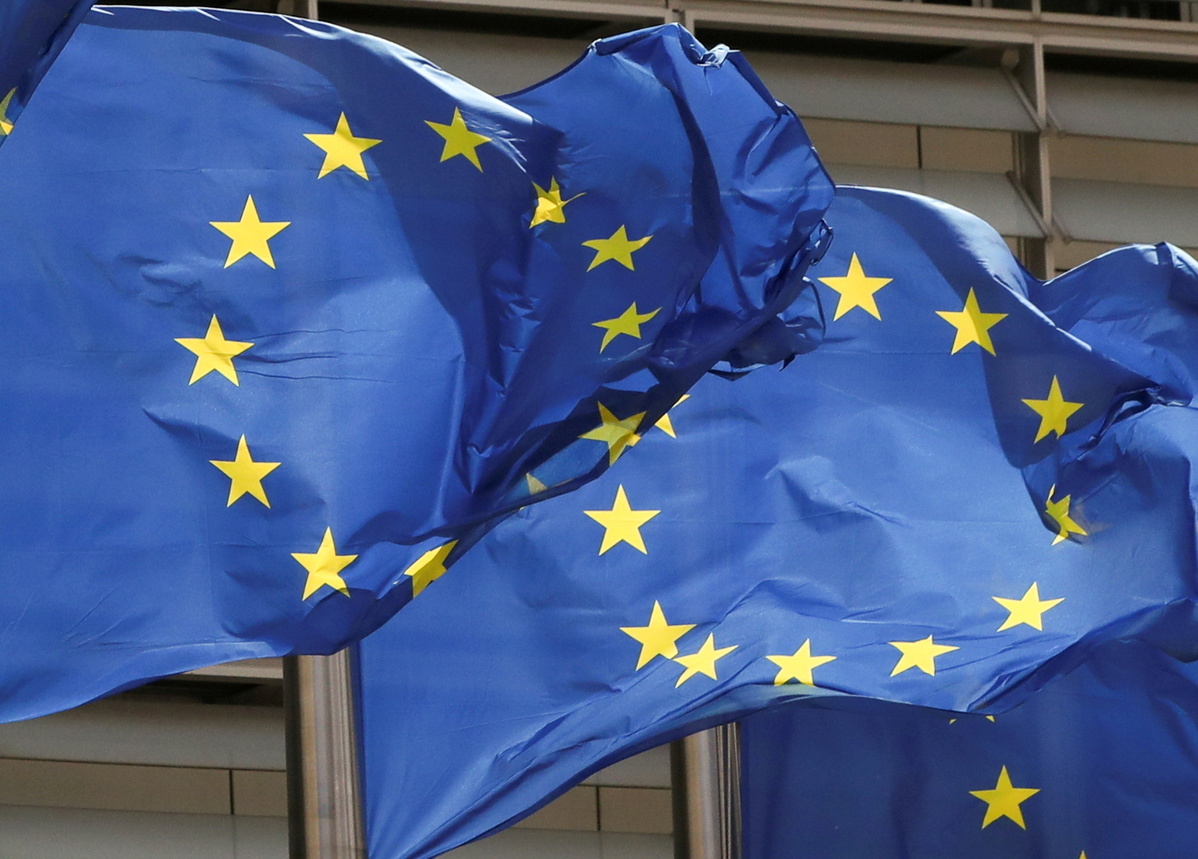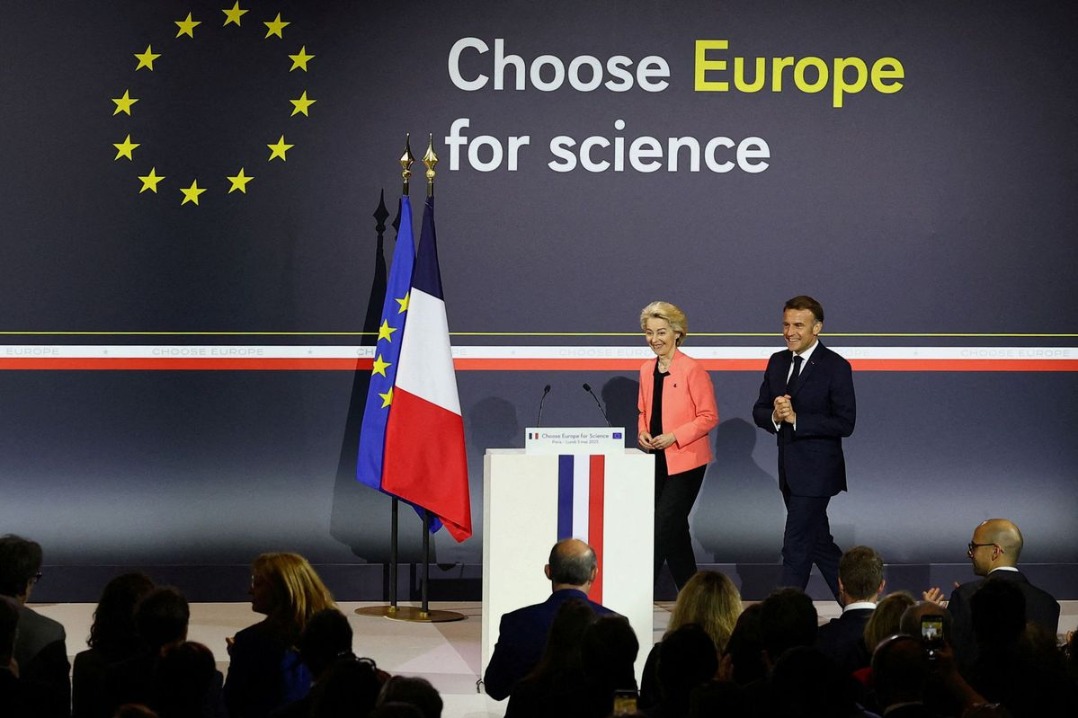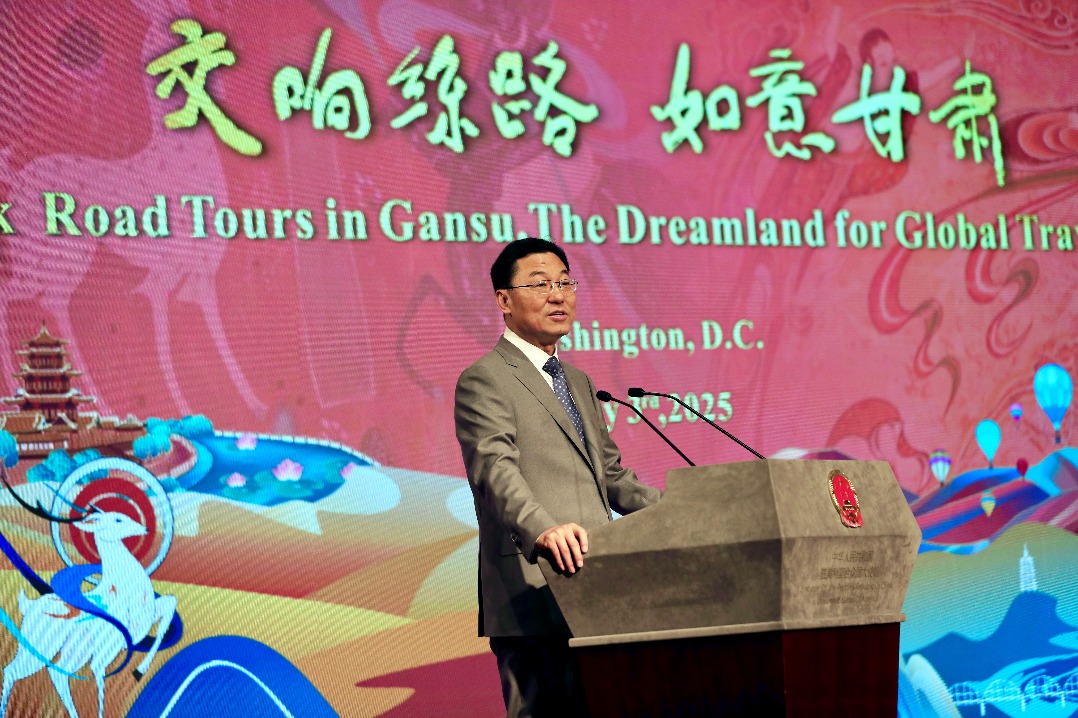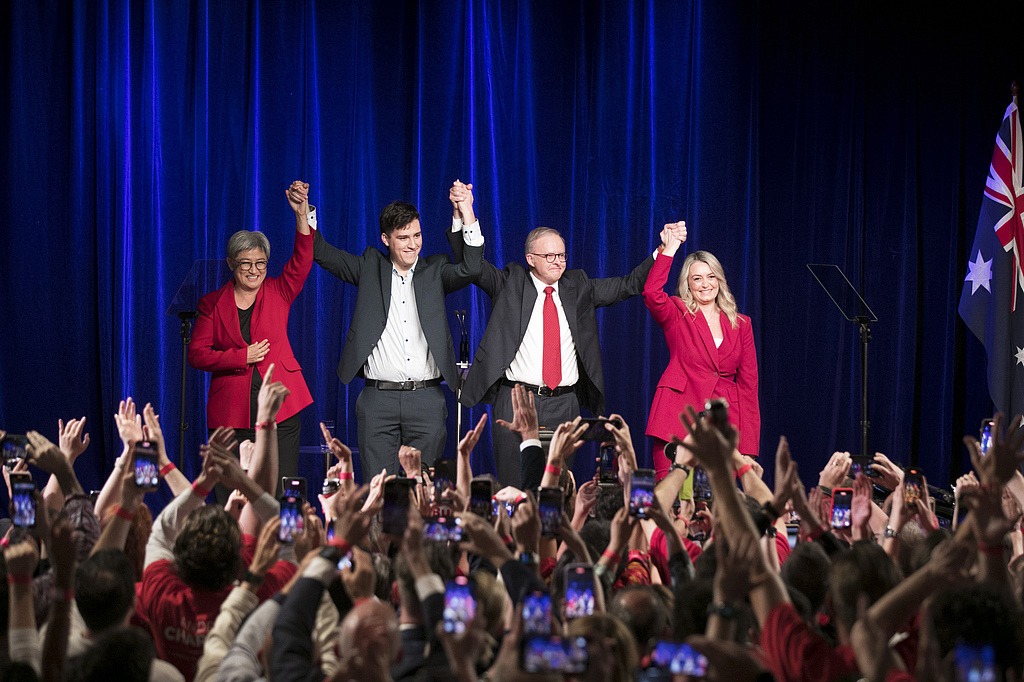EU looks for path to trade accord with US
Bloc prepares for countermeasures in the event of talks ending in deadlock


The European Union is working around the clock trying to cut a trade deal with the United States during a 90-day suspension in "reciprocal tariffs" even as it prepares for countermeasures against its transatlantic trade partner should talks fail.
The EU faces the prospect of tariffs of 20 percent on its exports to the US when the 90-day suspension expires on July 14.
The European Commission has offered to buy more US goods to narrow its trade deficit with the country. US President Donald Trump has rejected an EU offer of a zero-for-zero tariff trade-off on industrial goods.
Trump has repeatedly complained about the EU's trade surplus and trade barriers. The bloc has argued that while in 2023 there was a goods trade surplus of $168 billion in favor of the EU, the US had a surplus of $117 billion in services trade with the bloc.
"We absolutely are committed to finding agreements with the US that benefit both sides," a European Commission spokesman, Olof Gill, said.
However, there had been no formal offer to the US on anything, he said, referring to a Financial Times report that said the EU wants to increase the value of its purchases of US goods by 50 billion euros ($56.68 billion) to reduce its trade deficit.
The article, based on interviews with European Commissioner for Trade Maros Sefcovic, said the EU is looking to increase its purchases of liquid natural gas from the US as well as agricultural products such as soybeans.
The commission has presented its 27 member states a list of concessions it is willing to make to the US as well as a new list of goods on "which it plans to impose retaliatory tariffs should negotiations fail, Politico reported.
The EU has also suspended tariffs of 10-25 percent on $23 billion of US imports in retaliation for US steel and aluminum tariffs even though the US has not suspended tariffs of up to 25 percent on EU cars and steel and aluminum.
"If negotiations are not satisfactory, our countermeasures will kick in," European Commission President Ursula von der Leyen said in announcing the suspension on April 10.
Last week she told the European People's Party Congress in Valencia, Spain, that "global markets are shaken by the unpredictable tariff policy of the US administration".
Pascal Lamy, a former director-general of the World Trade Organization, said any EU retaliation against the US should not be on goods alone, but also on services, including financial and digital ones.
'Two options'
"The EU has two options," Lamy said on Friday. "One is to try to negotiate, and if that doesn't work, the second option is to retaliate."
There had been no sign from the US of a desire for a negotiated settlement, he said.
If the US maintains tariffs that violate its WTO commitments, other countries will have the right to retaliate and seek compensation, Lamy said.
"At the end of the day, it's a lose-lose game. But there has to be a price for a country which belongs to an international organization and which has (made a firm) commitment (to that organization)."
However, legal challenges before the WTO will not produce legally binding rulings because the appellate body often known as the WTO court has become nonfunctional since the first Trump administration blocked the appointment of two judges to the court.
Olivier Blanchard and Jean Pisani-Ferry, both senior fellows at the Peterson Institute for International Economics in Washington, suggested that EU countries should work with non-EU countries to form international partnerships, or a "coalition of the willing".
The EU should conduct major trade negotiations with China as "a signal that the EU is not following the US blindly and that much of the world wants to continue to play by reasonable rules", they said.
Ding Chun, director of the Center for European Studies at Fudan University in Shanghai, said China and the EU agree on the need to uphold free trade and to abide by WTO rules. So when the US violates global rules to wage trade wars against China and the EU they should adopt a more common language and be more rational in handling their differences and expanding their economic and trade ties and collaboration on economic governance, Ding said.
"I hope the EU's China policy will become more pragmatic, rational and mutually beneficial … I also hope the China-EU Comprehensive Agreement on Investment can be revived in a way that benefits both sides."
Ding was referring to an accord whose ratification has been held up by the European Parliament since 2021.
British academic Martin Jacques, a senior fellow at Tsinghua University in Beijing, said European foreign policy has been ceded to the US since the end of World War II.
"I think Europe is going through a process of awakening. It's in a state of shock. Europe is in a very new world now. It's going to adapt to it. It's got no choice."

































